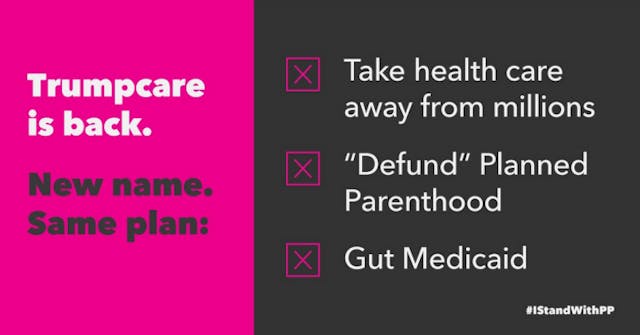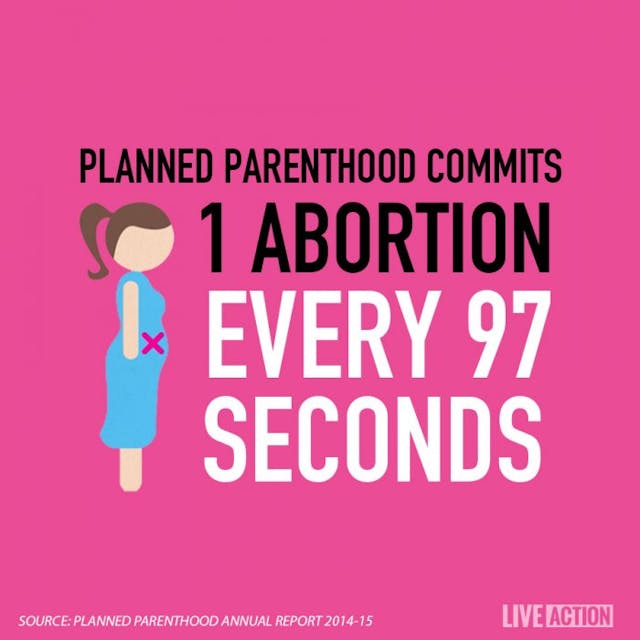
New Archbishop of Canterbury warns of danger in legalizing assisted suicide
Nancy Flanders
·
Analysis·By Catherine Livingston, PhD
11th hour chance to defund Planned Parenthood may lie in the Senate’s hands
It’s the 11th hour for Senators Lindsey Graham (R-SC), Bill Cassidy (R-LA), Dean Heller (R-NV), and Ron Johnson (R-WI), who have introduced the last chance for an Affordable Care Act (ACA) repeal in this budget year. The plan would also defund Planned Parenthood for a year and restrict health care plans that cover abortions, except under very limited circumstances.
Dubbed the “Graham-Cassidy-Heller Amendment,” it would repeal much of the ACA and replace it with money for the states to create their own plans.
The $1.2 trillion bill, H.R. 1628 (115), which has been at the CBO for about one week, according to the senators, would provide states with block grants instead of Obamacare’s tax credits, Medicaid expansion and cost-sharing payments. It would also repeal Obamacare’s individual and employer mandates and the medical device tax.
In general, Republicans favor giving the states a “block grant” of funding to create their own health care systems. The repeal bill attempts to equalize health care spending by the federal government to states.
These block grants, to the tune of $500 billion, will allow the states to “repeal, repair or keep their ObamaCare programs,” The Hill reports. “If you like ObamaCare, you can keep it. If you want to replace it, you can,” Graham said.
The 140-page amendment explicitly excludes Planned Parenthood and some other facilities which commit abortions from receiving federal money. Listed as “prohibited entities,” the bill describes these facilities as follows:
[D]escribed in section 501(c)(3) of the Internal Revenue Code of 1986 and exempt from tax under section 501(a) of such Code; (ii) is an essential community provider… that is primarily engaged in family planning services, reproductive health, and related medical care; and (iii) provides for abortions, other than an abortion— (I) if the pregnancy is the result of an act of rape or incest; or (II) in the case where a woman suffers from a physical disorder, physical injury, or physical illness that would, as certified by a physician, place the woman in danger of death unless an abortion is performed, including a life-endangering physical condition caused by or arising from the pregnancy itself; and (B) for which the total amount of Federal and State expenditures under the Medicaid program under title XIX of the Social Security Act in fiscal year 2014 made directly to the entity and to any affiliates, subsidiaries, successors, or clinics of the entity, or made to the entity and to any affiliates, subsidiaries, successors, or clinics of the entity as part of a nationwide health care provider network, exceeded $1,000,000 (pages 55-56).
In short, the Graham-Cassidy-Heller-Johnson repeal bill would prohibit Planned Parenthood from receiving any government reimbursements as long as the abortion corporation is committing abortions. It would also prohibit tax credits for insurance plans covering abortions.
Planned Parenthood blasted the bill on social media saying:

Planned Parenthood also re-fired its old, tired scare tactics, saying:
The Graham-Cassidy Trumpcare bill fails the @jimmykimmel test. Millions won’t be able to afford health care. #ProtectOurCare #IStandWithPP https://t.co/Ed58O3RvHn
— Planned Parenthood (@PPact) September 13, 2017
The fact is, millions cannot afford health care under Obamacare either. As TIME magazine reported last year, Obamacare rates soared for those not receiving subsidies:
Yet it’s also true that for Americans who don’t get insurance through work, and who make too much money to qualify for federal subsidies, the cost of health coverage is about to soar dramatically, with premiums sometimes rising $1,000, even over $2,000 for the year. The list below is not comprehensive. It’s just a sampling of states where regulators have already approved some astronomical price increases for individual health plans next year.
That list includes astounding figures such as in the state of Oklahoma:
Individual Obamacare premiums rose 35% in 2015. That sounds pretty steep, but it pales in comparison to the 76% price increase, on average, the Oklahoma Insurance Commission expects for individual premiums in 2017.
The repeal of much of the ACA would allow the states to use their block grants to meet the individualized needs of their citizens, divvying up money based on a formula that takes into consideration the region, population and other important factors. Block grants would prove far more equalizing than the current system that over-pays a handful of states — namely, New York, California, Massachusetts, and Maryland. The Weekly Standard explains:
Not all states would get the same amount of money as they would under Obamacare: States like California and New York would get less, but states like Virginia, Indiana, and Missouri would get more, Cassidy said. Graham and Cassidy argued the formula would fix existing inequities in Obamacare. “Four states under Obamacare get 40 percent of the money: New York, California, Massachusetts, and Maryland,” Graham said, but those four states make up about 20 percent of the U.S. population.
The Health Affairs blog notes:
The primary innovation of Cassidy-Graham-Heller is that it would end premium tax credits, cost-sharing reduction payments, and enhanced Medicaid expansion funding by 2020, and offer in their stead block grants, which could be used to provide coverage, stabilize markets, reduce cost-sharing, and provide wraparound coverage for persons in the expansion group.
According to Breitbart, the amendment has the support of 14 governors. President Trump also issued a statement supporting the amendment:
I applaud the Senate for continuing to work toward a solution to relieve the disastrous Obamacare burden on the American people. My Administration has consistently worked to enact legislation that repeals and replaces Obamacare, and that can pass the Senate and make it to my desk. Obamacare has been a complete nightmare for the many Americans who have been devastated by its skyrocketing healthcare premiums and deductibles and canceled or shrinking plans. As I have continued to say, inaction is not an option, and I sincerely hope that Senators Graham and Cassidy have found a way to address the Obamacare crisis.
Despite the increasing support for the senators’ work, the amendment may face an uphill battle as the deadline for a vote on the Senate floor is September 30. On that date, the current fiscal year’s reconciliation bill period expires. However, as the Weekly Standard reports:
In order to even have a bill considered under reconciliation rules, it must get an official score from the Congressional Budget Office, and it could take CBO some time to perform a state-by-state analysis. “We’ve had the thing at CBO for about a week, I’m asking Mitch [McConnell] to help me get a score from CBO,” Graham said Tuesday. According to a Senate aide, Republican leadership has privately made it clear the bill is a top priority.
The amendment has just over two weeks to come to the floor and pass. It needs only a simple majority of 51 votes. If it receives 50 votes, Vice President Mike Pence can break the tie. Upon passage of this bill, America’s top abortion corporation would finally be defunded, allowing taxpayer funds to be redirected to clinics that actually serve the health and medical needs of women, children, and families — all without continuing to aid Planned Parenthood in ending the life of a new baby every 97 seconds.

Live Action News is pro-life news and commentary from a pro-life perspective.
Contact editor@liveaction.org for questions, corrections, or if you are seeking permission to reprint any Live Action News content.
Guest Articles: To submit a guest article to Live Action News, email editor@liveaction.org with an attached Word document of 800-1000 words. Please also attach any photos relevant to your submission if applicable. If your submission is accepted for publication, you will be notified within three weeks. Guest articles are not compensated (see our Open License Agreement). Thank you for your interest in Live Action News!

Nancy Flanders
·
Analysis
Cassy Cooke
·
Analysis
Nancy Flanders
·
Newsbreak
Angeline Tan
·
Human Interest
Nancy Flanders
·
Issues
Nancy Flanders
·
Human Interest
Catherine Livingston, PhD
·
International
Catherine Livingston, PhD
·
Newsbreak
Catherine Livingston, PhD
·
Human Interest
Catherine Livingston, PhD
·
Human Interest
Catherine Livingston, PhD
·